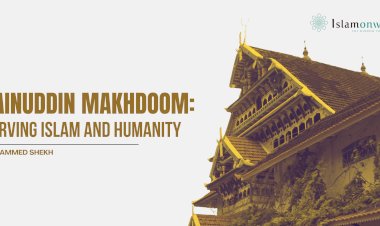Exploring the Transformative Legacy of Imam Asha’ri: A Detailed Biography
Islam is the only religion that adapts to every age regardless of its geological, chronological, or other criteria. It is the most flexible religion, as it encompasses various schools of jurisprudence and theology. One of the two major theological schools was formed by the great Muslim scholar Imam Al-Asha’ri. Born Abu Al Hasan Ali Bin Ismail in Basara (Iraq) in 873 AD, Imam Asha’ri began his primary education under his father, who was a notable Ḥadīth scholar.
Early Life and Education
Imam Asha’ri’s lineage traces back to a prophecy by the Prophet Muhammad (peace be upon him). When the 54th verse of Surah Al-Māida was revealed, the Prophet (s) pointed to Abu Moosa Al-Asha’ri and said, “This is your family.” Imam Asha’ri was part of this family. Initially, he followed the Shafi school and adhered to Ahlu Sunna Wal Jama’. However, after his father’s death, his mother married Ali Al Jubbaee, a Mu’thazila scholar. Under his stepfather's influence, Imam Asha’ri adopted Mu’thazila beliefs and lived as a Mu’thazila for the next forty years, becoming a significant scholar of that time.
The Turning Point
Despite his prominence, Imam Asha’ri was often dissatisfied with Mu’thazila ideology. This internal conflict culminated in a significant debate with his stepfather, Jubbaee, over the fate of three brothers in the hereafter: a devout believer, a non-believer, and a child. The debate highlighted contradictions in Mu’thazila theology, leaving Jubbaee unable to answer Imam Asha’ri’s probing questions satisfactorily. Imam Asha’ri asked, “What if the child said that he wanted to be a good believer like his brother?” and “What if the non-believer said, ‘Why didn’t you do the best for me?’” Jubbaee’s inability to provide a convincing answer led to a separation between them.
That night, seeking divine guidance, Imam Asha’ri prayed earnestly. In a dream, the Prophet (s) instructed him to follow orthodox teachings. This spiritual encounter led Imam Asha’ri to renounce Mu’thazila publicly. He symbolically discarded his overcoat during a Friday sermon, declaring his abandonment of Mu’thazila ideology.
Establishing Asharite Theology
After this pivotal change, Imam Asha’ri deepened his studies under Ibn Kullab, a prominent Ahlu Sunna Wal Jama’ scholar. He authored significant works such as Kitab Al Luma’ and Kashful Asrar, attracting numerous followers and establishing a theological school bearing his name. Imam Asha’ri’s contributions did not introduce new concepts to Islam but clarified and expanded on the teachings of eminent scholars like Abu Hanifa, Imam Malik, Imam Shafi, Imam Bukhari, and Imam Muslim.
Methodology and Contributions
Imam Asha’ri was distinct from ultra-traditionalists, advocating for debate, dialogue, inquiry, and the use of logic and science in propagating Islam. He supported his stance with numerous Quranic verses promoting reason and discussion. His works include Maqālāt al-Islāmiyyīn wa Ikhtilaf al-Musallīn, a rebuttal to a Mu’thazila text of the same name, discussing various Muslim and non-Muslim sects and their doctrines. His book, Kitāb al-Lumaʻ fī al-Radd ʻalá Ahl al-Zaygh wa-al-Bidaʻ, is another notable example of his theological defenses.
Imam Asha’ri also opposed ultra-traditionalism, describing those who rejected logic and reason as ignorant and irrational. He actively wrote books or spoke publicly to refute falsehoods, such as his opposition to the Mu’thazila book Maqālāt al-Islāmiyyīn.
Legacy and Impact
Imam Asha’ri’s prolific writing includes Kitāb al-Lumaʻ fī al-Radd ʻalá Ahl al-Zaygh wa-al-Bidaʻ, Maqālāt al-Islāmiyyīn wa Ikhtilaf al-Musallīn, and Risālat ilā Ahl al-Thaghr. Scholars like Ibn Hazm noted he authored around fifty-five books, though Imam Asha’ri himself mentioned twelve. His student, Abu Hasan Al Bahili, famously compared sitting with Imam Asha’ri to being a drop of water beside an ocean. Regarded as the ‘Mujaddid’ (renewer) of the third Hijri century, Imam Asha’ri’s modest lifestyle and profound commitment to faith were exemplary.
He performed the Subh prayer with the same ablution made for Isha’ for nearly twenty years, demonstrating his dedication. Known for his humor, he never lied, even in jest. His servant recounted Imam Asha’ri’s indifference to worldly matters, focusing entirely on the hereafter. Imam Asha’ri passed away in 936 AD in Baghdad, leaving a lasting theological legacy and reinforcing the belief that divine guidance leads to the righteous path.
References
- Saleh bin Muqbil bin Abdullah Al-Usaimi (2011), Imam Al-Ash'ari: His Life and Doctrinal Phases, Dar Al-Fadhila.
- Qahthan Abdul Rahman (2012), The Islamic Faith and Its Doctrines, Books Publisher.
- Al-Shahrastani (1992), Al-Milal wa al-Nihal, Scientific Books House.
Musthafa Moidu is a research scholar in the Department of Qur’an and Related Sciences at Darunnajath Islamic Complex.
Email: musthafamuhammedvp1@gmail.com
Disclaimer
The views expressed in this article are the author’s own and do not necessarily mirror Islamonweb’s editorial stance.
























Leave A Comment